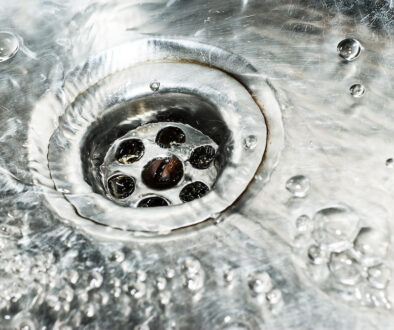Is It A Migraine Or A Sinus Headache?
Blog Updated 6/6/2022
It’s one of the most common medical problems we see in our office: Patients describe their headache symptoms, believing that spring and fall allergies are the forces behind their throbbing and aching.
What these patients don’t realize is that their sinus headache may not be caused by a nasal or sinus problem, but instead due to a certain type of migraine headache that can cause nasal/sinus symptoms and cause pain/pressure located in the sinus region.
But what is the difference between a sinus headache vs. migraine?
MIGRAINE 101
First, a quick overview: Migraines are typically severe headaches, frequently created by an underlying, inherited, neurological disorder. However, there are many different types of migraine headaches, with a wide variety of presenting symptoms.
Although researchers are not sure of the exact cause of a migraine, it is believed that “triggers” (such as smells, foods, hormonal fluctuations, stress) cause certain areas of the brain to become “overexcited,” resulting in a severe headache.
Migraines are frequently accompanied by an increased sensitivity to light, smells, or sounds. Twelve percent of the U.S. population—an estimated 36 million Americans—experience migraine headaches. For some reason, migraines are more common in women and can occur during childhood, as well as adulthood.
HOW DO YOU MAKE A MIGRAINE GO AWAY?
Of course, the treatment will depend upon the underlying cause of your migraine. Treating it is centered around stopping symptoms and, in severe cases, medication is needed to prevent the migraine from occurring. Preventative medications may need to be taken every day.
Some effective preventative medicines include blood pressure lowering medications, antidepressants, anti-seizure drugs and even Botox treatment.
There are some lifestyle and alternative treatments that may work, but this depends upon the severity of your migraines. For relief, many people try:
Deep relaxation
This helps you cope with stress, which can be the cause of some migraines.
Developing a solid eating and sleeping routine
By following a consistent schedule, you could possibly see some relief.
Staying hydrated
Be sure to select water over sports drinks, which are often loaded with sugar.
Exercising regularly
Again, this helps relieve stress, which can cause migraines.
Acupuncture
Some clinical trials indicate that this technique may hold some promise in helping some people. However, it’s important to speak with your doctor before taking part in any alternative medicine practice.
DO MIGRAINES RUN IN FAMILIES?
It’s possible that there is a genetic connection to migraines. Those who have a family member who has experienced migraines are more likely to have one also.
Other risk factors for developing migraines include:
- Age- while these occur at any age, they tend to start during your teen years and peak during the 30s.
- Gender – According to the Mayo Clinic, women are three times more likely to have migraines. Hormonal changes may also play a role.
Migraines can be debilitating. However, there are some differences between a migraine and a sinus headache. We’ll take a look at these differences, but first, let’s examine what causes a sinus headache.
Interested in learning more? Following are some useful links to organizations with and their extensive library of informational videos.
The American Migraine Foundation
The National Headache Foundation
The Association of Migraine Disorders
SINUS HEADACHES
Patients with seasonal allergies or chronic or acute sinusitis may also have a headache. The most common cause of a sinus headache is a viral respiratory infection, or the common cold. As opposed to a migraine, which has a neurological cause, a sinus headache is caused by inflammation of the nasal passages. Other symptoms of sinusitis include:
- Stuffy nose
- Pain around the eyes, cheeks and forehead
- Decreased sense of smell
- Excessive nasal discharge
- Sneezing
- Sore throat
- Cough+/- Fever
- Chills
WHAT ARE THE SIGNS OF A SINUS HEADACHE?
A sinus headache is usually not as severe as a migraine but can still make you feel bad. Following are a few of the telltale signs that you might have one:
- A feeling of fullness in your cheeks, brow, or forehead
- Pain if you bend forward (or lie down)
- Fatigue
- Congestion
- Aching teeth
HOW DO YOU TREAT A SINUS HEADACHE?
The key to treating a sinus headache is to address the underlying cause.
Sinus headaches can be caused by chronic allergies.
If your sinus problems are related to allergies, we’ve got extensive treatment options available to you. We offer allergy testing and treatment, as well as treatments such as sublingual immunotherapy.
However, for temporary relief, we recommend the following:
Nasal irrigation
Neti pots are particularly effective. However, you must be sure that they remain sanitary. Be sure to carefully follow the directions.
Drink water
Hydrating yourself helps thin the mucus lining. Likewise, you’ll want to avoid things like caffeine or alcohol that can cause dehydration.
Rest
Your body is busy fighting an infection. Give it the rest it needs so your immune system can do its job.
Steam
Breathing in steam from a hot shower can help. You may also try putting a warm, wet towel on your face, and then follow it with a cool towel. This can not only help alleviate pain, but it can open up your nasal passages.
Use a humidifier
Adding moisture to the air can reduce congestion. Likewise, you should avoid dry air, tobacco smoke and other things that can irritate your nasal passages.
Over-the-counter medication
We can give you an idea of some of the best ones to try.
How can you tell the difference between a sinus headache vs migraine?
Your Raleigh Capital ENT otolaryngologist near you will be able to determine whether or not your headache is the result of a sinus or allergy issue.
If the headache is likely related to a migraine, then sinus treatment or allergy medication will not work very well to alleviate the underlying problem. If you have a migraine, we can refer you to a neurologist. Neurologists are physicians who specialize in treating diseases of the brain, nervous system, and spinal cord.
One of our experienced ear, nose and throat doctors near you can make an accurate diagnosis.
SINUS HEADACHE VS. MIGRAINE
However, below is some helpful information to use as a general guideline to illustrate the differences and similarities between headaches caused by migraines and sinusitis:
| Migraine Headache | Sinus Headache |
| Sinus pain and pressure | Sinus pain and pressure |
| Nasal congestion usually absent | Nasal congestion |
| Increased sensitivity to sounds and smells | May be difficult to smell and hear due to inflammation or fluid build-up |
| May cause watery eyes | May cause watery eyes |
| May be triggered by hormonal fluctuations, certain foods or stress | May be triggered by environmental factors, such as allergies |
| Usually not accompanied by other upper respiratory symptoms | May or may not be accompanied by upper respiratory symptoms |
| May cause nausea, dizziness | No nausea |
| Can affect vision and may cause blind spots | Typically does not affect vision |
| Increased sensitivity to light | Typically not affected by light |
| May see flashing lights (“aura”) before an attack | No auras before an attack |
| Severe pain that impairs ability to function | Pain usually more mild to moderate, still able to function |
| No fever | May have fever |
| No nasal secretions | Nasal secretions that may be excessive |
WHAT NEXT?
First, you should always speak to your doctor when you have a severe headache, particularly if that headache causes vision or balance problems.
Second, realize that treating a sinus infection will not help your headache if it is caused by a migraine. Therefore, it is important to figure out what the underlying cause of your headache is. This can make a big difference in how you are treated and whether your symptoms will get better or not. If one of our ear, nose and throat doctors suspects that you may have a migraine, he or she may refer you to a neurologist or other physician who specializes in treating this specific type of headache.
At Raleigh Capitol ENT, We Treat the Pain of Sinus Headaches
Sinus headaches interfere with every aspect of your life. Whether trying to concentrate on schoolwork or preparing for that corporate presentation, sinus problems affect your concentration, mood and overall well-being.
There’s no reason for you to live like that.
We’ll determine the source of your headache, and if it’s found to be caused by the sinuses, we’ll offer the latest state-of-the art treatment provided by compassionate physicians.
See why we’re the premiere ear nose and throat doctors in the Raleigh area. Contact us for an appointment today.




